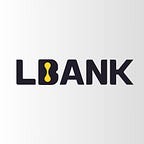The Fundamentals of Blockchain Technology: Why It Is Important
Blockchain technology is the concept or system that governs how a blockchain works. Cryptocurrencies like Bitcoin are made possible by blockchain technology — the same way email was made possible by the internet.
Blockchain is an immutable distributed digital ledger (a digital record of transactions or data kept across numerous places on a computer network) that goes beyond cryptocurrencies (unchangeable, meaning a transaction or file recorded cannot be modified).
Cryptographer David Chaum created the first blockchain-like technology in 1982. Stuart Haber and W. Scott Stornetta wrote an article in 1991 describing their research on consortiums.
However, it was Satoshi Nakamoto (presumed pseudonym for a person or group of people) who invented and implemented the first blockchain network after deploying the world’s first digital currency, Bitcoin.
Benefits of Blockchain Over Traditional Finance
Some of the benefits of blockchain over traditional finance are that it is trustless. This means transactions are only executed when programmed conditions are met by both parties.
Traditional sectors can apply blockchain technology in their existing ecosystem. Currently, blockchain is used for money transfers, financial exchange, real estate, healthcare, government, banking and many more.
Below are the key advantages of blockchain technology:
Unstoppable: Once the conditions outlined in a blockchain protocol are satisfied, a transaction that has been launched cannot be modified, interrupted, or undone.
Immutable: Records on a blockchain are unchangeable and untouchable; Bitcoin has never been the target of a hack.
Decentralised: No single entity maintains the network. Unlike centralised banks, decisions on the blockchain are made via consensus.
Lower Cost: Using blockchain reduces transaction and operational costs to the minimum because it helps get rid of middlemen.
Peer-to-Peer: Cryptos like Bitcoin, let you send money directly to anyone, anywhere in the world, without an intermediary like a bank charging transactions or handling fees.
Transparent: As open-source software, public blockchains let anybody observe transactions and their source code.
Finally, it’s a great way to bank the unbanked and protect against theft that can occur due to holding cash in physical locations.
Types of Blockchain Technology
The primary use of blockchains is as a distributed ledger for cryptos such as bitcoin. Blockchain can be integrated into multiple areas and there are currently at least four various kinds of blockchain networks: public, private, consortium and hybrid blockchains.
Public Blockchain: It has no access limitations at all. Anyone with access to the internet can use it to send transactions and sign up as a validator. Such networks typically provide financial rewards to individuals that protect them using a Proof of Stake or Proof of Work method.
The bitcoin and Ethereum blockchains are two of the biggest and best-known public blockchains.
Private Blockchains: Permissioned blockchains are private. You cannot join the network unless the administrators invite you. Access is only allowed for participants and validators, and only a central authority can decide who can be a node. The term Distributed Ledger (DLT) is mostly used for private blockchains.
Hybrid Blockchains: This combines centralised and decentralised elements and works based on aspects of the above-mentioned are used.
Sidechains: It is a blockchain ledger that operates side by side with the main blockchain. For the sidechain to function independently of the major blockchain, entries from the primary blockchain can be linked to and from the sidechain.
Conclusion
Several industries, including; supply chain, finance, real estate, and gaming, can benefit from blockchain technology. By adopting Smart Contracts, which are self-executing pieces of code stored and accessible on an immutable blockchain, businesses and people can eliminate the expense and ambiguity of dealing with third parties to perform routine business.
Disclaimer: The opinions expressed in this blog are solely those of the writer and not of this platform.
